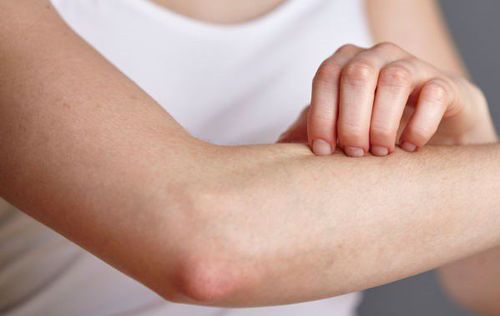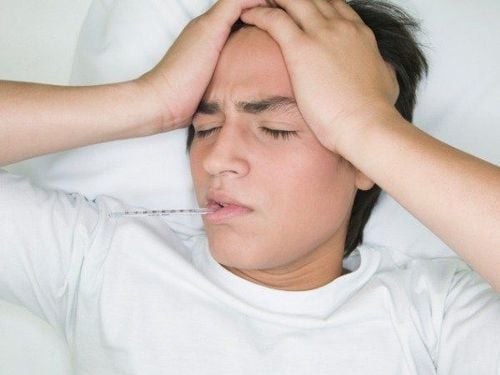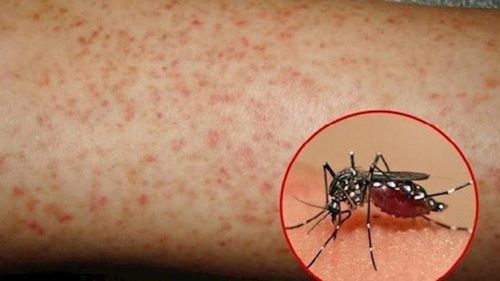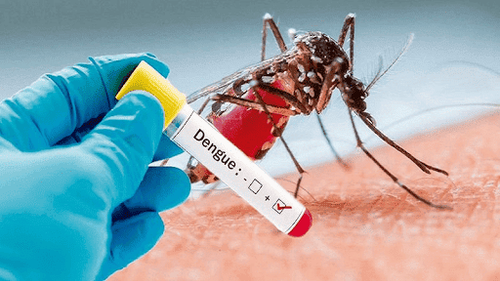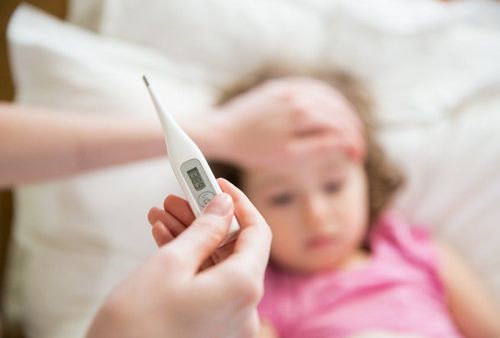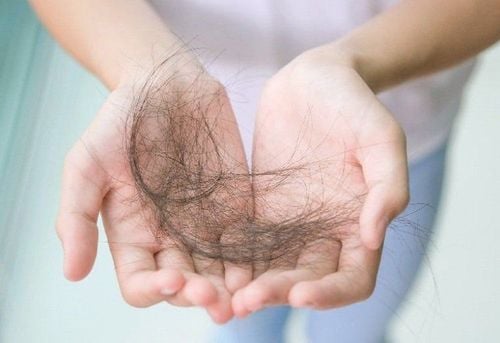This is an automatically translated article.
Dengue fever is an acute infectious disease caused by mosquito bites, the disease spreads at a fast rate. The disease can have dangerous complications if not diagnosed and treated promptly.
1. How does dengue attack the body?
The World Health Organization (WHO) ranks dengue fever as the most concerning mosquito-borne disease. Dengue hemorrhagic fever is an infectious disease that spreads very quickly. Over the past 50 years worldwide, dengue infections have increased more than 30-fold.
In Vietnam, dengue fever is a common disease, because there is no specific drug to treat dengue, the main method of dengue control is to apply measures to kill mosquitoes, larvae... outbreaks or mosquito shelters.
Dengue fever is caused by the dengue virus with 4 types. In Vietnam, there are 4 types that cause this disease and they often alternately cause epidemics. The immune system is only formed after infection, so it is only specific for each type. That makes a person can get dengue fever up to 4 times and the later infections are often more severe than the previous ones.
Mosquitoes are the mediators of dengue fever transmission from the body of an infected person to a healthy person. After a mosquito bites a person infected with dengue fever, the virus from the infected person's blood will be transferred to mosquito cells. 12 days is the time from when a mosquito sucks blood from an infected person until the mosquito can transmit the disease to a healthy person. During this time, in the mosquito's body, the viruses multiply, spreading to the cells until they reach the mosquito's salivary glands. At that time, if the mosquito bites a healthy person, it will transmit the dengue virus to the healthy person's body.

Sốt xuất huyết Dengue là bệnh truyền nhiễm, lây lan với tốc độ rất nhanh
2. Evolution of dengue fever
The course of dengue fever is unpredictable and gets worse quickly. Symptoms of dengue fever begin with a high fever that lasts for 4-7 days. The patient will feel severe headache, pain in the joints, nausea, fatigue, loss of appetite. These are the symptoms of mild dengue fever.
After the onset stage (the first 3 days of infection), the patient feels uncomfortable with the lesions inside the blood vessels and lymphatic vessels, which may be accompanied by abdominal pain, black stools, nosebleeds, and bloody stools. bleeding gums ... at this time the patient's body has reduced platelets to the point of bleeding.
The most severe symptom of dengue fever is shock. The patient's body temperature dropped below 35 degrees Celsius, and clearly felt the body was bleeding profusely, blood pressure dropped rapidly. Loss of blood too much, plasma increases rapidly, causing the lungs to overflow with effusion, the patient's body falls into a coma due to cerebral edema, which is life-threatening.
Dengue fever in adults can cause complications such as gastrointestinal bleeding, kidney failure, liver failure, blood clotting disorders...
3. How to treat dengue fever
Dengue fever makes the patient's body exhausted, so the patient needs to rest, eat well, drink lots of water, take more vitamins to improve the immune system. Most of the patients with dengue died from subjective reasons, going to the hospital when their condition got worse.
In the first days of fever, the patient will be prescribed an antipyretic containing a single ingredient paracetamol. Taking the wrong medicine or taking an overdose can be life-threatening. Do not take aspirin and ibuprofen because it works to prevent platelets from accumulating, causing stomach bleeding.
Can reduce fever by covering forehead with warm towel, wiping body, armpit... Encourage patient to drink plenty of water, juice, drink more oresol. Adults need to drink from 2.5-3 liters per day. Children with dengue fever often lose a lot of water, so parents need to pay attention to children drinking more electrolytes, boiling water to cool fruit juices... Dengue fever in adults can cause dangerous complications. Therefore, when seeing any signs of the disease, the patient should immediately go to a medical facility for examination and treatment, not self-treatment at home.
If the condition is not serious and does not require hospitalization, the patient should follow the recommendations for treating dengue at home.
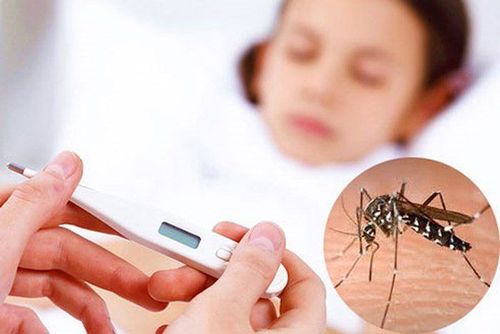
Nếu không cần phải nhập viện, người bệnh cần tuân thủ các khuyến cáo trong việc điều trị sốt xuất huyết tại nhà
4. Some notes when treating dengue at home
Do not use paracetamol overdose to avoid damage to the liver Do not use antibiotics unless there is a risk of infection, need to consult a doctor, should not self-medicate Patients should not arbitrarily Infusion at home to avoid dangerous complications such as acute pulmonary edema, heart failure... Do not apply folk remedies, do not have enough scientific basis, have not been proven in practice, do not shave the wind. , sauna Patients should wipe themselves with warm water, should not bathe with cold or hot water. Do not eat greasy, spicy foods, drink alcohol, or smoke. When seeing any signs of dengue fever, the patient should be taken to a medical facility to be examined and get the most accurate results in order to have a suitable treatment plan for each subject. confusion for other illnesses with similar symptoms.
Please dial HOTLINE for more information or register for an appointment HERE. Download MyVinmec app to make appointments faster and to manage your bookings easily.




